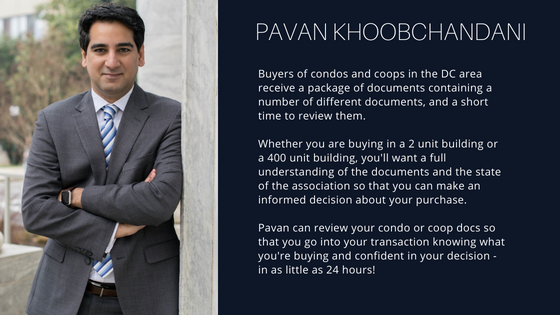Taking A Deep Dive Into A Condo Association's Bylaws
- Pavan Khoobchandani
- Jun 13, 2022
- 2 min read

Buying or owning a condo is exciting, especially for first-time homeowners. With that excitement comes responsibility, such as developing an understanding of legal documents like an association's bylaws, which can have a significant impact on an owner's day-to-day life.
Bylaws are written rules that govern how an association operates, and regulate living in a given building or complex. While most bylaws are built on a standard template, don't be fooled - they're specific to each association, and must be studied carefully to fully understand their implications.
Key Provisions That Tend To Appear In Condo Association Bylaws
A condo association’s bylaws are designed to provide clear guidance and a framework for ensuring that the community operates in an orderly manner. Bylaws will generally cover topics such as who the board and officers are, how meetings are conducted, voting, and many other operational procedures. Bylaws may also detail rules and regulations for an association's owners. These can range from limits on pet ownership or leasing to restrictions on how much of the floors must be carpeted. Understanding these provisions is key to ensuring a legal, smooth and pleasant living experience, as an owner can be held accountable for violating any of the bylaw provisions.
Election And Meeting Processes
Bylaws generally will outline how members of the board will be elected, including any qualification requirements such as whether board members must be actual owners of a unit. Additionally, the bylaws often detail when and how often elections are held and provide any applicable rules regarding proxies and absentee voting in the event that an owner is unable to attend the election. Bylaws will also outline meeting procedures such as notice requirements and how meetings should be operated.
Financial Obligations and Fees
From preparing a budget, to collecting assessments, to setting up a reserve fund, the financial obligations outlined in an association's bylaws affect nearly every aspect of their operations. Bylaws will provide clear guidance on how fees are assessed, how they are collected, and how any disputes over the assessment of fees should be handled.
Restrictions On Use
Most bylaws contain restrictions on use that delineate any rules about pets, floor coverage, leasing, window treatments, signage, and many other issues. This section is a good section to focus on to determine whether the condo is one that would fit in with your lifestyle - for example, if it is very important to you to have a political sign in your window, you'll want to understand if that's allowed. Similarly, you should study what the restrictions on pets are if you have a pet, and on leasing if you want to lease your unit out.
Maintenance Requirements
Maintenance requirements are a key part of the bylaws for most condo associations. These provisions usually delineate the maintenance requirements that homeowners need to meet and what items are the responsibility of the association to maintain. Neglecting these requirements can often have serious consequences, ranging from damaging other residents' property to non-compliance with regulatory standards or insurance policies.
Insurance
Bylaws will generally include provisions regarding the association's master insurance policy, as well as any required unit-owner (H0-6) policy. These two types of policies cover different things, and it's really important to understand what is and isn't covered in both policies.

.png)


